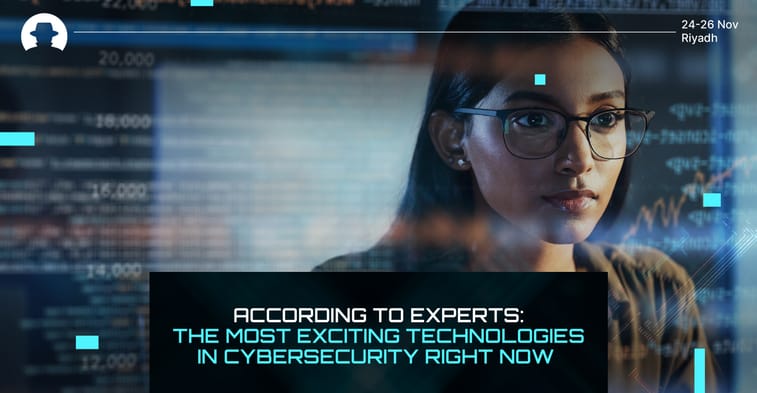
When privacy creates blind spots: the exploitation of privacy-first tech
New research reveals how privacy-first technologies are creating fraud blind spots, as AI-driven attacks scale faster than detection capabilities.
Read More
Cybersecurity is an industry that thrives on innovation. We recently wrote about how venture capitalists play an important (and changing) role in driving innovation in the sector; and today, we want to take a look at some of the technologies that leading cybersecurity practitioners are most excited about.
From AI to quantum cryptography to process-driven security improvements, these technologies are shaping the future of cybersecurity.
We know. Everyone’s talking about it. But there are good reasons for that – its ability to analyse vast amounts of data, detect anomalies, and automate responses has changed the way organisations defend themselves.
Jennifer Ewbank (Founder of Andaman Strategic Advisors and former Deputy Director of Digital Innovation for the CIA) cited AI as a transformative technology for the field of cybersecurity.
“The technology that excites me most in the cybersecurity space is artificial intelligence,” she said. “And I know that’s a bit of a buzzword, everyone talks about it, but you can really see how AI capabilities are reshaping the landscape of cybersecurity today. It’s about human experts working with machine precision and computational power and it’s all about AI partnerships.”
AI is already being integrated into threat detection systems, fraud prevention tools, and automated security response platforms. But the real change will happen through collaboration between AI and human analysts, allowing for more efficient and accurate cybersecurity defenses.
There’s no denying that AI is dominating the conversation. But cybersecurity experts are also increasingly focused on the potential impact of quantum computing and cryptography. Jaya Baloo (COO and Co-founder at Stealth Startup) is intrigued by how these disciplines can intersect.
“So, obviously at this conference we’ve heard a lot about AI,” she said during an interview at Black Hat MEA 2024, “And a new and emerging technology that really excites me is all of the work that will happen when we have really nice combinations, multidisciplinary approaches to cybersecurity that not only involve AI but also things about quantum computing, getting our tech deck resolved, looking at things like quantum cryptography – so all of these innovations, but most importantly the combination of innovation. That’s the thing that makes me really excited for the future.”
Quantum computing presents both challenges and opportunities for cybersecurity. On one hand, it has the potential to break current encryption methods, making traditional cryptographic security obsolete. On the other, advancements in quantum cryptography could lead to unbreakable encryption methods, securing data in ways never before possible.
When we asked Ahmad Almorabea (Senior Penetration Testing Consultant at TCC) if there’s a risk that industries and governments will be too slow to implement quantum-safe cryptography, he said:
“Yes, there's a risk. Quantum computing's advancement could potentially break current encryption methods. If industries and governments don't act swiftly to adopt quantum-safe cryptography, sensitive data could be vulnerable in the future. And there are many aspects in cryptography that could be broken, while Quantum computing advances (i.e. key derivation, encryption algorithms, PKI and more).”
The way to overcome that risk is, as Baloo hinted, by integrating quantum technology with other tech, including AI, so we can make critical advancements at a faster speed.
While there’s a lot of buzz around cutting-edge technology, some experts believe that the most exciting advancements in cybersecurity could come from process improvements – rather than just new tools.
Sounil Yu (CTO and Chief AI Safety Officer at Knostic) highlighted the importance of refining how cybersecurity is managed. When we asked him about the tech he finds most exciting right now, he said; “I’m going to try to not say AI, the most obvious answer. One of the things I think is really undervalued are process-related capabilities.”
“We tend to focus on technology as a solution to a lot of cybersecurity problems, but it turns out that process-related solutions are actually quite valuable in helping us tackle some of the thorniest challenges that we face – for which there may not be a technology solution at all.”
It’s a really important point. Because cybersecurity isn’t just about having the best or the newest tools – it’s very much about how tools are used within organisations. Process-driven improvements, such as better incident response protocols, automated security workflows, and zero-trust frameworks, can significantly improve an organisation’s security posture without requiring entirely new technologies.
Cybersecurity can’t succeed without innovation. But it’s worth remembering that innovation isn’t just about new products; it’s also about new ideas, new methods, new ways of thinking, new ways of doing things.
AI continues to enhance cybersecurity strategies by automating detection and response, while quantum cryptography offers new ways to protect sensitive data. And alongside these technological advancements, security processes and education are essential to make sure that organisations can adapt to new threats.
What makes the future of cybersecurity so exciting is not just any one technology but the intersection of multiple innovations. Because it’s this integration of elements that will drive greater resilience – and create proactive defences against cyber threats from all angles.
Join us at Black Hat MEA 2025 to share your perspective and meet potential partners – and shape the future together.
Join the newsletter to receive the latest updates in your inbox.

New research reveals how privacy-first technologies are creating fraud blind spots, as AI-driven attacks scale faster than detection capabilities.
Read More
Cybersecurity founders share how Black Hat MEA helps them test ideas, prove product value, and grow their business.
Read More
Cybersecurity is now a leading barrier to financial innovation. New research explains why fraud, legacy systems and risk are slowing payments progress.
Read More